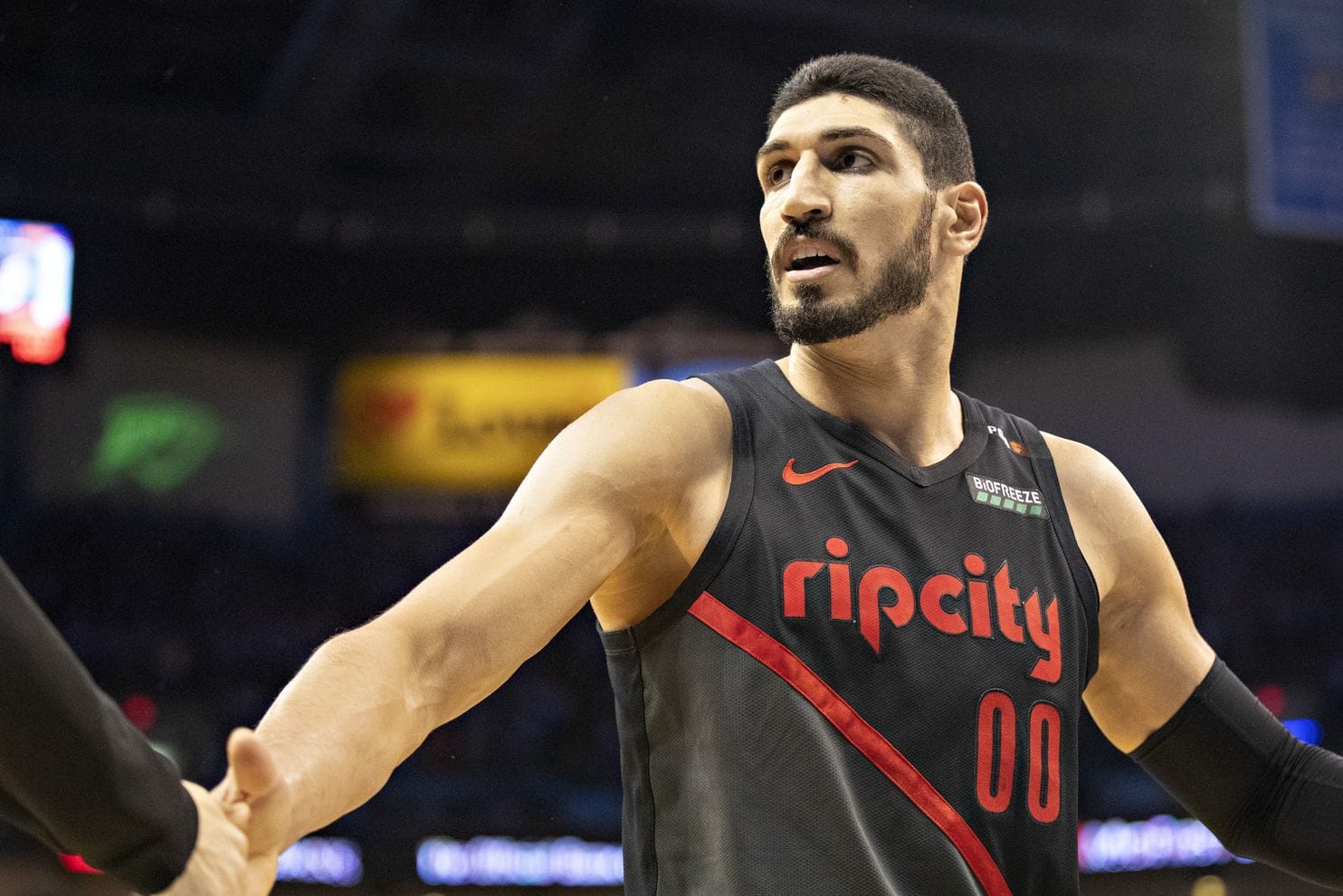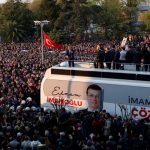Trail Blazers player Enes Kanter during a game against the Oklahoma City Thunder during the NBA playoffs last month. (Wesley Hitt/Getty Images)
This morning I woke up at 3, long before sunrise. It is Ramadan. It is also the NBA playoffs. Both require my absolute focus in a way that I have never experienced before.
Like hundreds of millions of Muslims around the world, I ate my pre-fast meal, suhur, which is what we eat before we practice the first of our five daily prayers. Every year, we observe Ramadan for 29 to 30 days based on the lunar calendar. During this time, the most important month of the year for the Islamic faith, followers of my religion abstain from food, water and even medicine until the sun is no longer visible on the horizon. At the end of each day, we break the fast with a light meal called an iftar following the evening call to prayer. Over the years, I’ve become accustomed to the quiet of that morning meal, a time when I devote myself completely to my faith.
Ramadan this year is different from any I’ve ever experienced because it coincides with the NBA playoffs. My team, the Portland Trail Blazers, face our possible elimination Thursday night in what will be one of the most important games I’ve ever played. This year I am testing the limitations of my bodily strength in a way I never have before. But I’ve also come to understand my potential and how inner strength can translate to triumph.
My observance as a practicing Muslim in the NBA is somewhat uncommon. Since joining the league in 2011, my dedication to my faith has aroused the curiosity of teammates, coaches, trainers and fans. The other night, before Game 5 against the Denver Nuggets, as I was counting down the seconds to iftar, my teammates watched eagerly as I finally broke my fast with a painkiller for my injured shoulder and six peanut butter and jelly sandwiches. They started asking me questions and joking that I was going to throw up. I laughed and told them to get out on the floor and start warming up and that I’d join after I was done eating. I actually felt great.
Many people are fascinated by how I follow my faith, including the fasting (which I do regularly throughout the year), the meaning behind praying five times a day and what Muslims can and cannot do during this holiest month of the year. I recently texted NBA legend Hakeem Olajuwon, and he provided some much-needed guidance about persevering in the postseason during Ramadan. Ultimately, as I take my final sips of water during the morning suhur, I prepare for the day’s challenges by turning inward.
The challenges might involve exhausting training sessions, or physical therapy for my shoulder, or dealing with unsettling news from family or friends in Turkey, where the nation suffers under an authoritarian regime.
My faith in Islam is not unlike my faith in the game of basketball: Both require immense determination, focus, passion and discipline. But the challenges I face during Ramadan are not unique to me. Millions of Muslims around the world can relate to the struggle to make it through each day without food or water. The only reason people talk about my experience during Ramadan is that I am a professional basketball player with a prominent platform.
Basketball to me is more than a passion or a paycheck — it is the tool I use to try to have an impact in the world. But not all challenges can be overcome with a willingness and determination, for there are still things that remain out of our control. Today, thousands of prisoners of conscience who are also observant Muslims are observing Ramadan from behind the bars of jails in Turkey. I would like to continue to use my platform to advocate on behalf of people in Turkey who can’t speak out, including at the Human Rights Foundation’s Oslo Freedom Forum. More than anything, I want to be an example for children everywhere, showing them that you can thrive when challenged — fasting for Ramadan, for instance, but also going all out in the NBA playoffs.
This year, more than ever, I’ve come to welcome the quiet darkness each morning during Ramadan. I try to give all I have to my faith each day, and all I have to my game and my team each night. Resilience is born out of the challenges we choose to meet. We all have limitations but also great potential.
By
Source: Washington Post



